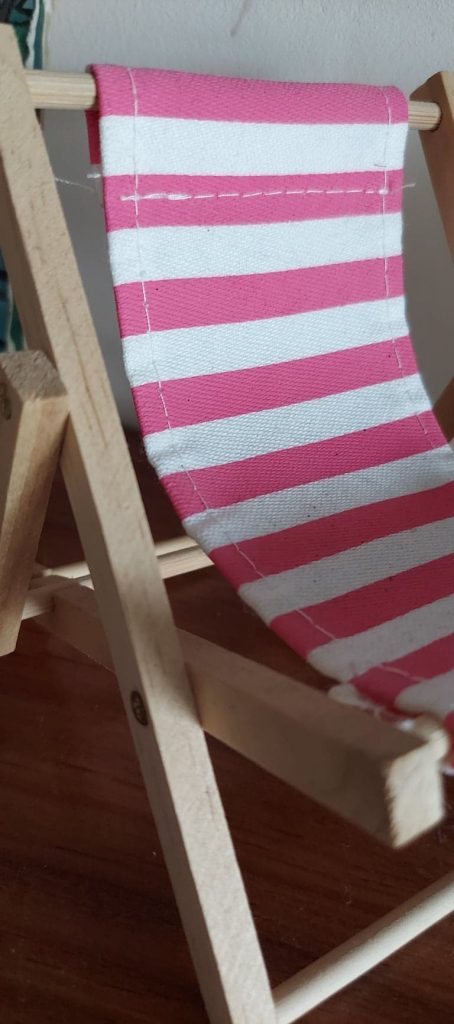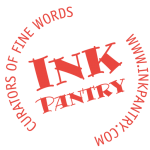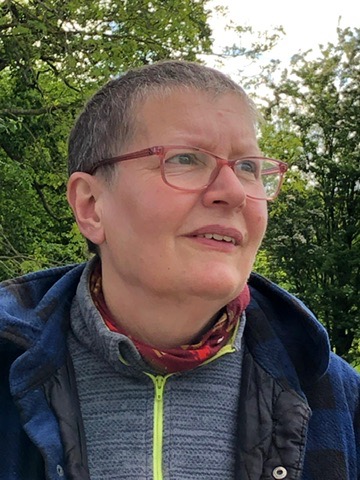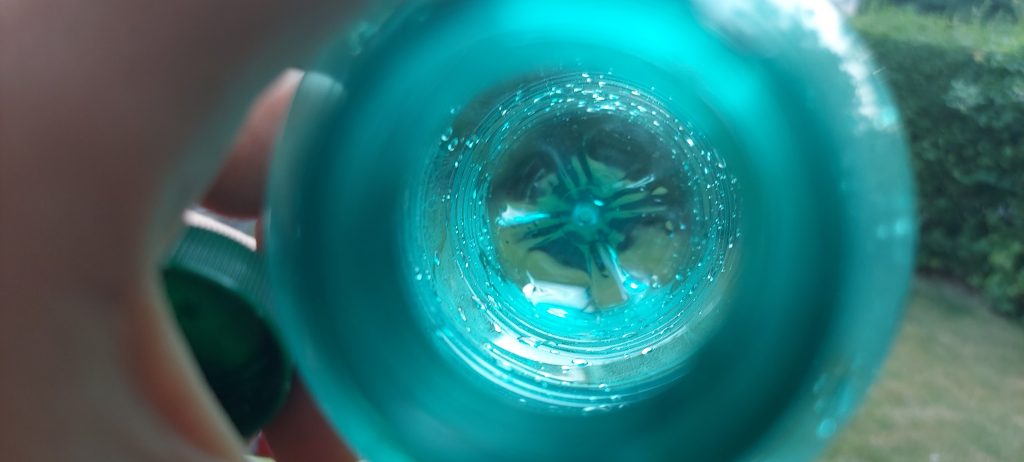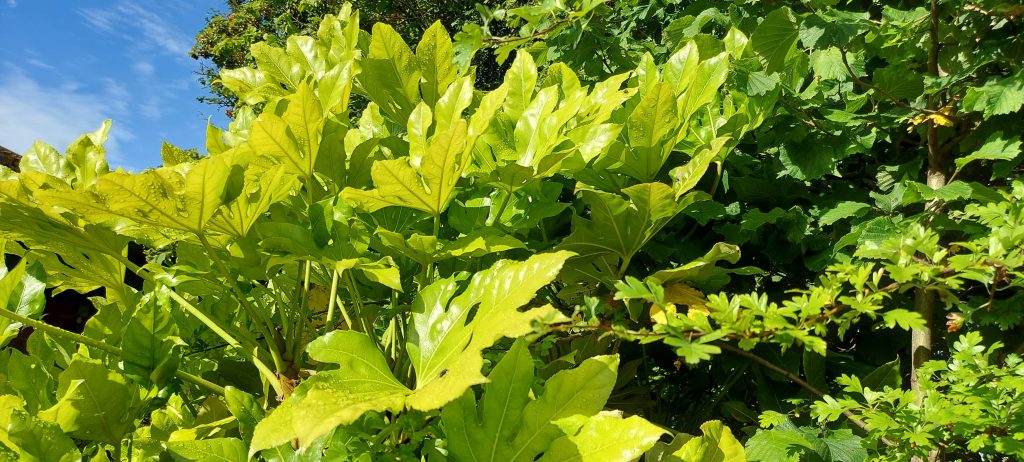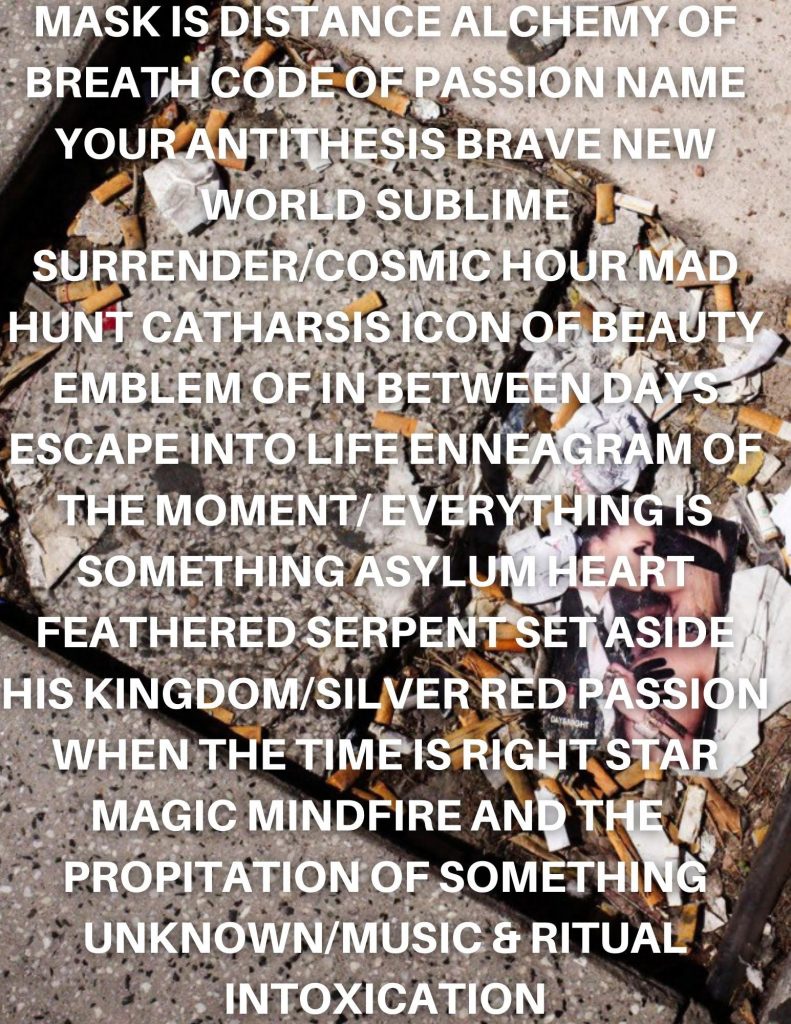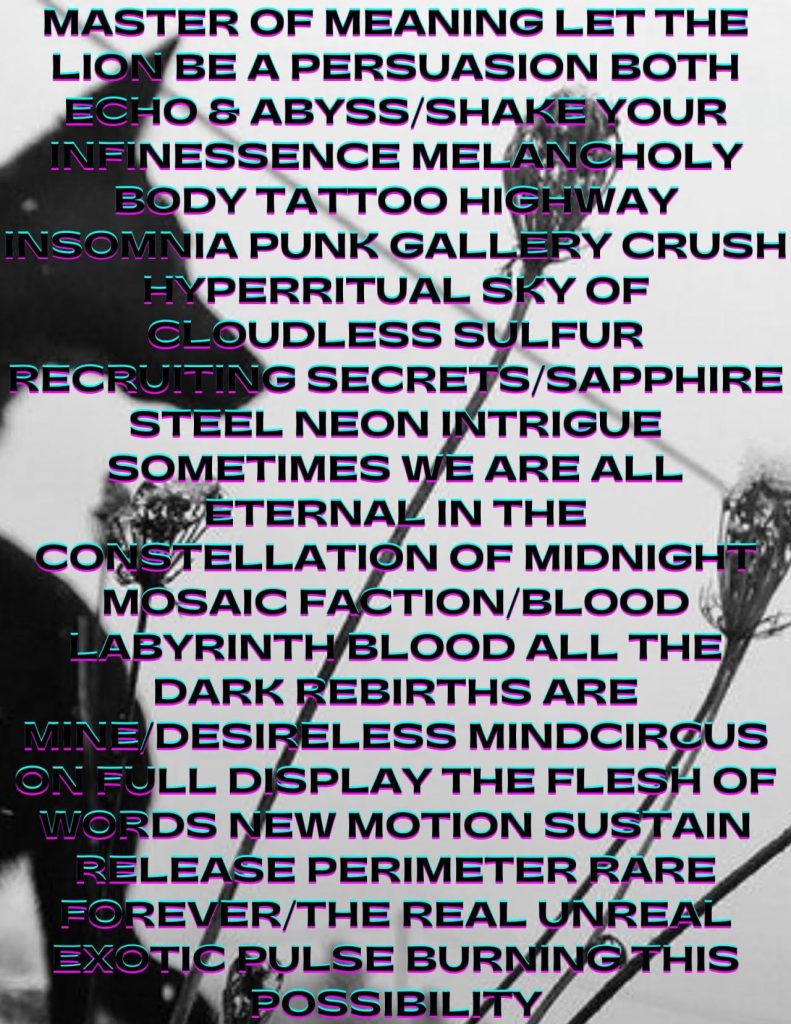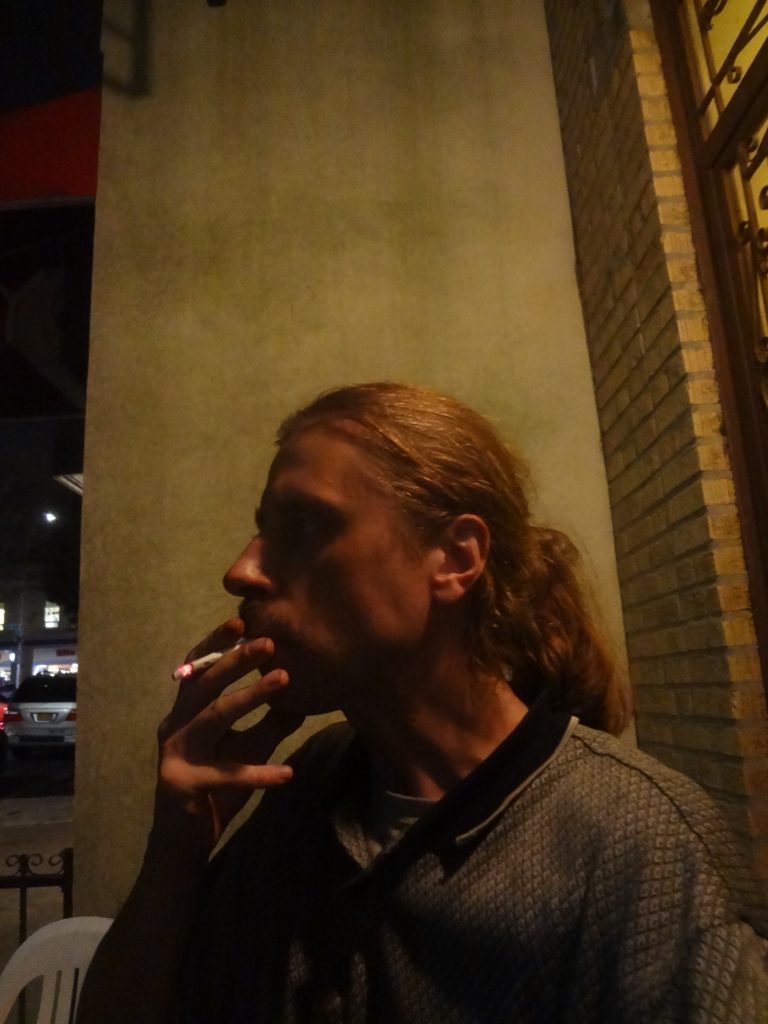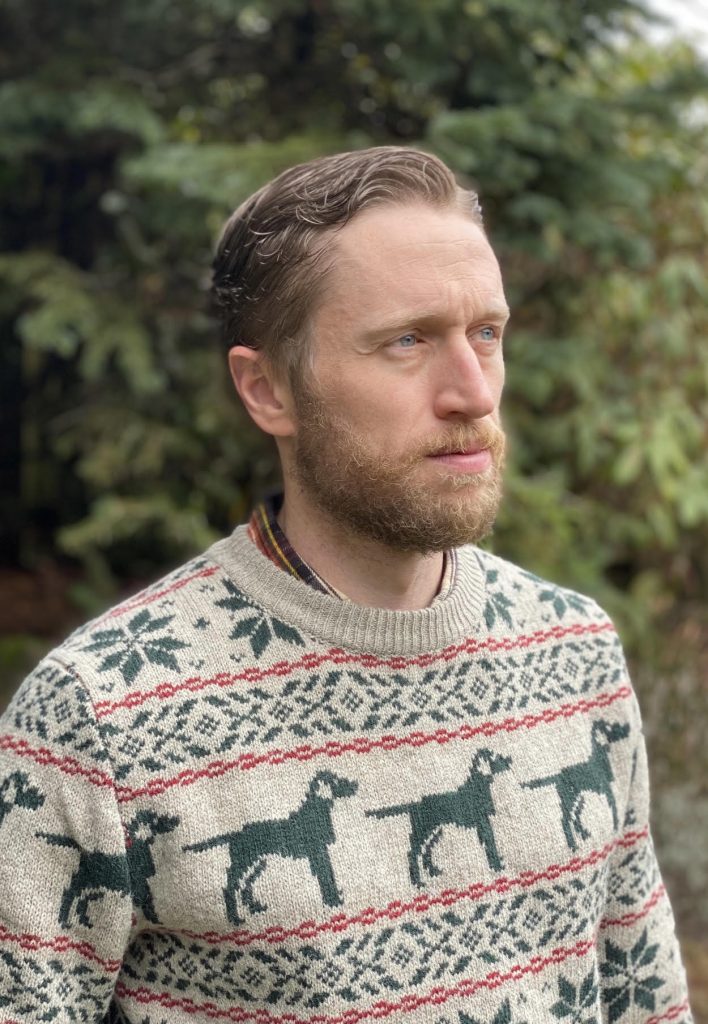
Atman. Atman.
I have no clue what Krshna taught Arjuna
but I like the name Atman a lot.
Atman. Atman. Where a man is at.
At all times. No matter what.
Gita, get in the action, gorgeous girl,
God is the answer, keep the meter.
Wisdom, none.
What Krshna tells Arjuna makes no sense.
I prefer mathematics.
Knowledge of how things are made and done
more than meditation on the Self
as a manifestation of the One.
I’ll never have to leave this comfortable planet.
We have this asset but can we sell it?
In Paradise Lost, Satan executes his plan
but God already knows all about it.
Still, whether it succeeds or fails is up to Man.
Same here, when it comes to nuclear armaments,
a distraction from the work of making life permanent.
It is all premised on the mystery
of invisible but sentient particles—
little Krshnas and Kachinas
nesting inside one another.
Meanwhile life goes on outside all around you—
WWII, the Napoleonic wars,
the Civil War which we’re still fighting.
Krshna says behead your brothers
without prejudice or justice.
So it transpires in the nuclear fire.
Whatever forever.
Teacher, teacher—tiger!
On the Avenue
From marble and granite to steel and glass,
we were discussing Rhina Espaillat’s On the Avenue in class,
was it 1950s or 1980s NYC and were the fifties
the city’s halcyon days or is it now, the 2020s,
the boroughs teeming with immigrants
from the round earth’s imagined corners,
Hasidim and Muslim, Haitian and Russian, as we
Italians and Irish in an earlier era were. Everything will
be ok or not, the recombinations which make
prediction and intuition fortunately hopeless
and each individual an experiment gone well or wrong.
On the avenue God speaks by spewing
toy and clothing stores, breakdancers and ice skaters,
the Brooklyn Navy Yard seen from the Brooklyn Bridge,
the skyline admired when my car broke down on the Triborough Bridge.
The numbers of us overwhelm, there exist powers
overwhelming for the human body and mind.
I don’t mind but I can’t make sense of it.
Gandhi said What you do may not seem important
but it is very important that you do it. By that what is meant?
Linda said Why does God always have to be a man?
I said He could be a She but she’s probably really
a Tyrannosaurus rex. I like to be in America!
On Suffering
I waited too long
to biopsy my lung
yet lived long enough
however long is long.
Whatever. It’s not wrong
to count along
while busy living. Sing
and stay strong
absorb the sun’s photons
and store them in your bones.
Those bones
outlast slights and wrongs
are white as lightning and strong
as sticks and stones.
Inside is one’s
spirit, soul, the nameless one
the one that’s never known.
It has no cell phone
can’t communicate or even moan.
Therefore. Why complain?
Have some fun.
Soon
I’ll be undone
underground
my garden burned down.
So what. John Donne
died and so did Milton.
Emerson too, and Whitman.
Get over it. Vote. Love. When
the train comes in the station
whistle with it, wish on
stars with passion
or careful hesitation.
Anything’s fine, within reason.
Season by season
things get done.
Algebra and calculus, Malcolm X, George Washington.
No taxation
without representation.
A gun
in every den.
People will be governed
one way or another, by a king
or trusted friend. Corporation.
Men
are more disposed to suffer, while Evils are sufferable,
than to right themselves by abolishing the Evils to which they are accustomed.
I’m too young
to die! I cry. My generation
cannot outrun the sun
but I want to see what happens
next, a tsunami or tornado, rain
and wind beyond our comprehension
hit in the head by speeding debris, irony
of ironies! plastic contraptions,
rotting computers and yogurt cups,
pain in the baby! Moment’s
notice. None,
I notice,
live long
enough to see the end. A billion
years hence
human sense
has so modified and mutated under
some other sun
we share one mind
and everything’s remembered by everyone.
Look it up. There is no death, just perfect rest. A perfect tan
is possible, and work is fun.
I’m going there when I pass on
because souls will travel at warp speeds, using nuclear fission.
About suffering, religion
was right (and wrong) all along.
Robert Ronnow‘s most recent poetry collections are New & Selected Poems: 1975-2005 (Barnwood Press, 2007) and Communicating the Bird (Broken Publications, 2012).



